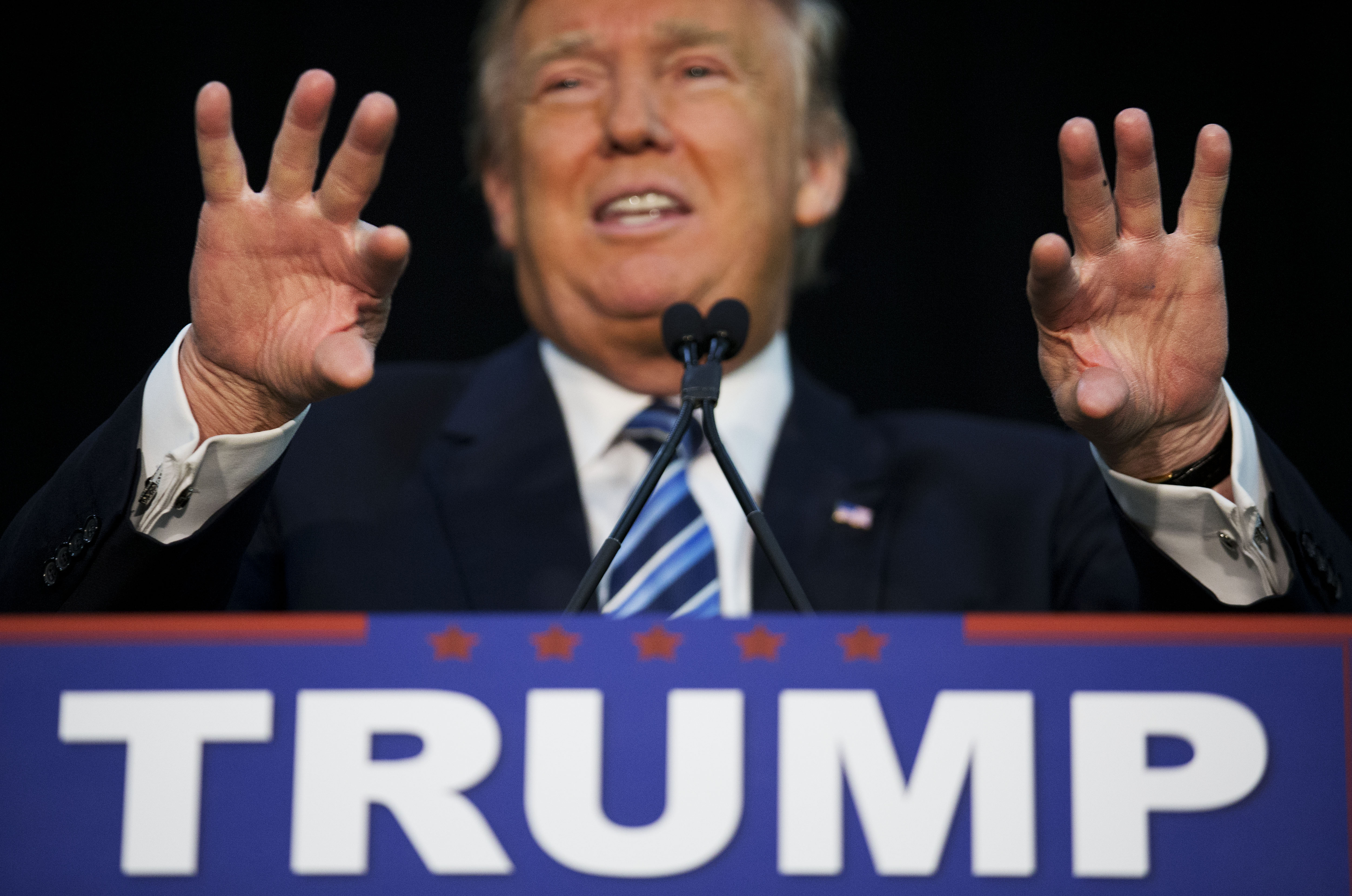Congratulations to Donald Trump for winning the New Hampshire Republican primary and driving a great big beautiful nail into American democracy’s classy, really terrific coffin. Trump won New Hampshire with roughly 35 percent of the vote, beating his closest rival, John Kasich, by a commanding 20 points. And he did it without doing the things that successful presidential candidates typically do, like investing in on-the-ground infrastructure and not calling their opponents “pussies.” He also behaved in a very un-Republican fashion by sacrificing the support of state party leaders and refusing to support the elimination of health coverage for poor people.
As Politico reported yesterday, Trump was well-positioned to snap up the endorsements of some New Hampshire lawmakers who had been Rand Paul backers up until he quit the race. The one thing they asked of Trump was a statement opposing New Hampshire’s expansion of Medicaid under the Affordable Care Act. And Trump, who lashes out at Obamacare all the time, refused to give them what they wanted:
But the next night, Trump took a pass. “I want to get rid of Obamacare and get you something great,” Trump vaguely offered. “We have some people that won’t be able to live. We have to help people. Don’t we have to help? What are we going to do, let them die in the street?”
One of the Paul supporters messaged Hemingway: What gives? The mogul’s state co-chair replied with an electronic shrug; he doesn’t write Trump’s speeches.
This is an important issue in New Hampshire, which struck a deal with the Department of Health and Human Services to use expanded Medicaid funds to purchase private insurance plans for eligible residents. Under the expansion, close to 50,000 low-income New Hampshire residents gained access to health coverage. But one condition of the expansion, which was negotiated between Democratic Gov. Maggie Hassan and the Republican-controlled state Legislature, was that it would be temporary and subject to reauthorization at the end of this year. As it stands right now, the program’s future is threatened by – you guessed it – Republican opposition.
What’s interesting about Trump is that, while he’s crazily anti-Obamacare and his own healthcare policy agenda is a mess, he nonetheless makes the case that there is a moral imperative and a government interest in making sure that low-income Americans have access to basic health services – he doesn’t want to have people “die in the street,” as he bluntly puts it, which creates the need for government to step in at some undefined level. And this argument, that the government has an obligation to “help” poor people who can’t otherwise afford medical treatment, cost him Republican endorsements.
That position sets him apart from most of the other Republican presidential candidates, who also want to repeal Obamacare but still won’t say what they would do to make sure that people who lost their coverage through repeal wouldn’t be left completely screwed. Instead they promise a return to the pre-Obamacare nightmare of health insurer discrimination while promising that the free market and some federally subsidized high-risk pools will somehow fix everything. When asked directly what they would do about people who lost coverage as a result of an Obamacare repeal, they dodge. Trump, at a bare minimum, wants to do something to make sure no one dies.
As Greg Sargent notes, Trump poses a strange threat to the Republican Party, and the conservative movement that powers it, in that he’s cobbled together a coalition of GOP voters who aren’t as reflexively anti-government as the party is often assumed to be. He came in second place in Iowa, and now he’s won an early state Republican primary running on the platform that government has a role in providing some level of basic health coverage to America’s poor.

